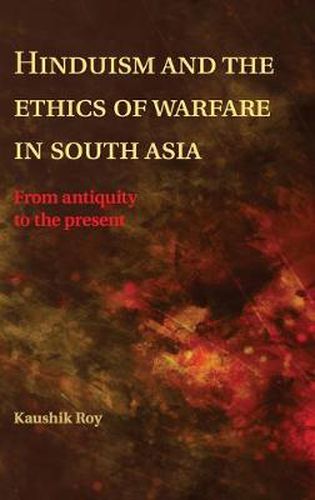Readings Newsletter
Become a Readings Member to make your shopping experience even easier.
Sign in or sign up for free!
You’re not far away from qualifying for FREE standard shipping within Australia
You’ve qualified for FREE standard shipping within Australia
The cart is loading…






This book challenges the view, common among Western scholars, that precolonial India lacked a tradition of military philosophy. It traces the evolution of theories of warfare in India from the dawn of civilization, focusing on the debate between Dharmayuddha (Just War) and Kutayuddha (Unjust War) within Hindu philosophy. This debate centers around four questions: What is war? What justifies it? How should it be waged? And what are its potential repercussions? This body of literature provides evidence of the historical evolution of strategic thought in the Indian subcontinent that has heretofore been neglected by modern historians. Further, it provides a counterpoint to scholarship in political science that engages solely with Western theories in its analysis of independent India’s philosophy of warfare. Ultimately, a better understanding of the legacy of ancient India’s strategic theorizing will enable more accurate analysis of modern India’s military and nuclear policies.
$9.00 standard shipping within Australia
FREE standard shipping within Australia for orders over $100.00
Express & International shipping calculated at checkout
This book challenges the view, common among Western scholars, that precolonial India lacked a tradition of military philosophy. It traces the evolution of theories of warfare in India from the dawn of civilization, focusing on the debate between Dharmayuddha (Just War) and Kutayuddha (Unjust War) within Hindu philosophy. This debate centers around four questions: What is war? What justifies it? How should it be waged? And what are its potential repercussions? This body of literature provides evidence of the historical evolution of strategic thought in the Indian subcontinent that has heretofore been neglected by modern historians. Further, it provides a counterpoint to scholarship in political science that engages solely with Western theories in its analysis of independent India’s philosophy of warfare. Ultimately, a better understanding of the legacy of ancient India’s strategic theorizing will enable more accurate analysis of modern India’s military and nuclear policies.